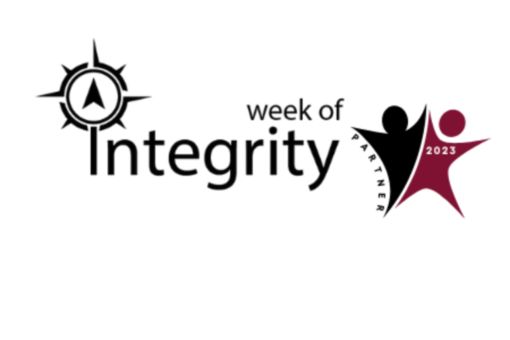39% of the Dutch working population has experienced an integrity violation at work in the past year. These mainly involved the negligent handling of secret or personal information, violations of privacy, bullying, the creation of a hostile work atmosphere and harassing each other. In slightly more than half of all cases (52%) the perceived integrity violation was reported.
As part of the Week of Integrity, KPMG conducted research on how Dutch employees experience integrity in their work. The Week of Integrity is an annual national initiative that takes place in december with the aim of sharing knowledge about integrity and stimulating the conversation within organizations about this topic. The research involved 1,000 respondents.
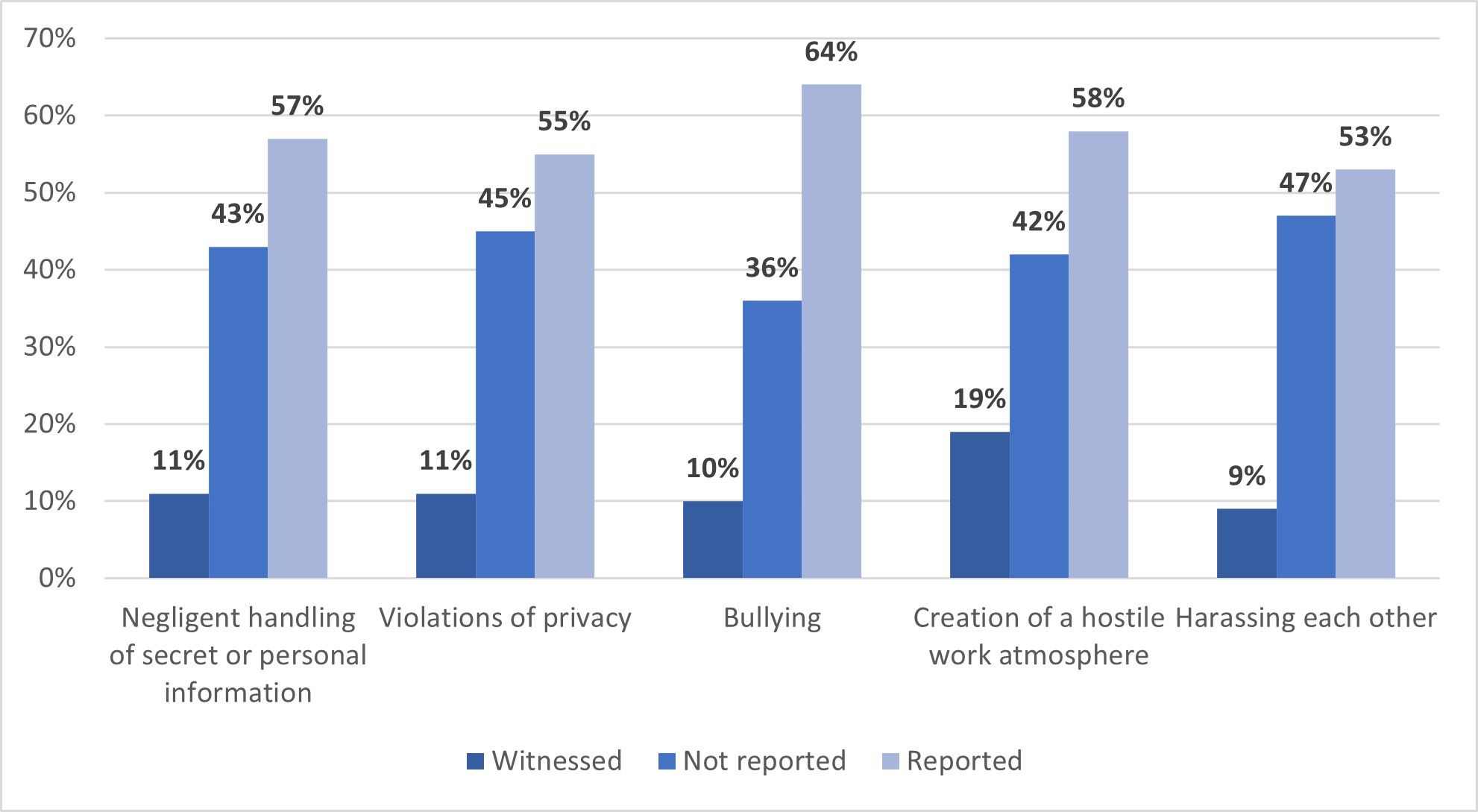
Soft controls
The "soft controls" model developed by Muel Kaptein, Professor of Business Ethics and Integrity Management at Erasmus University Rotterdam and Partner at KPMG Forensic, was used for this study. Soft controls consist of eight behavior-influencing factors in organizations. When these soft controls are more prominent within organizations, the likelihood of behaving with integrity increases and the likelihood of integrity violations decreases. See below an explanation per soft control and the extent to which these soft controls are embedded within Dutch organizations.
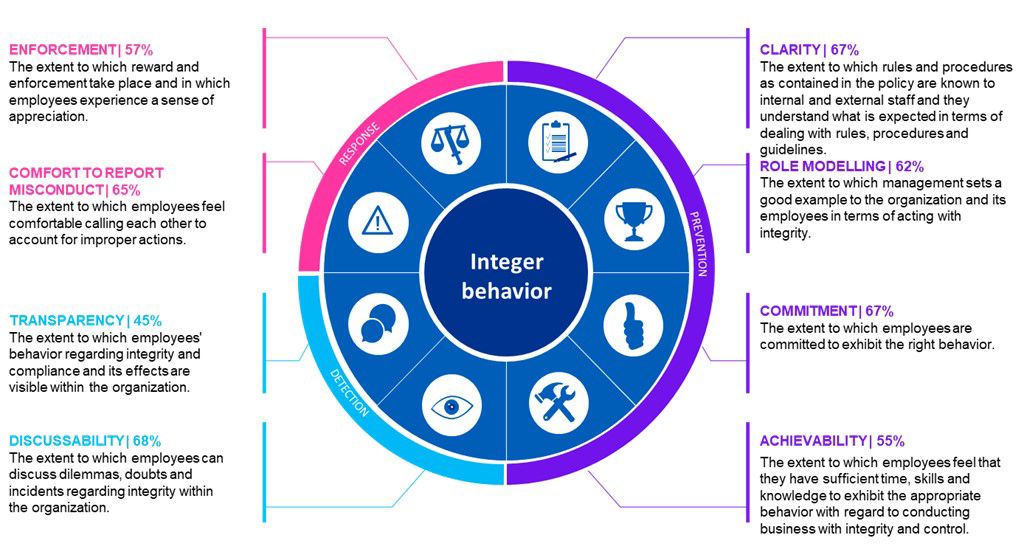
Figure: soft controls model
The research reveals that Dutch employees are most positive about “Discussability” (68%) and “Clarity” (67%). In contrast, they are least positive about “Enforcement” (55%) and “Transparency” (45%). Dutch employees are most positive about preventive soft controls. Preventive soft controls protect employees against conscious and unintentional integrity violations and are prerequisites for a healthy integrity climate in the workplace.
On average, employees are the least positive about the detective soft controls. The detective soft controls reflect which controls are in place (i.e., "hard controls" such as checks and measures, but also space/opportunity to discuss matters) to detect non-integer behavior.
This means that the conditions for a strong integrity climate are in place, but there is room for improvement in how (non)integer behavior is visible (detective) and encouraged (sanctioned - responsive).
Lack of clear visibility of integrity risks
Employees in the Netherlands believe that little effort is made by their employers to detect integrity violations. There is a lack of visibility into what is actually happening in the workplace. When non-integer behavior goes unnoticed, it increases the likelihood that such behavior will occur more often because employees think they can get away with it. Employee alertness will also decrease. After all, with limited controls, employees are hardly confronted with their own behavior.
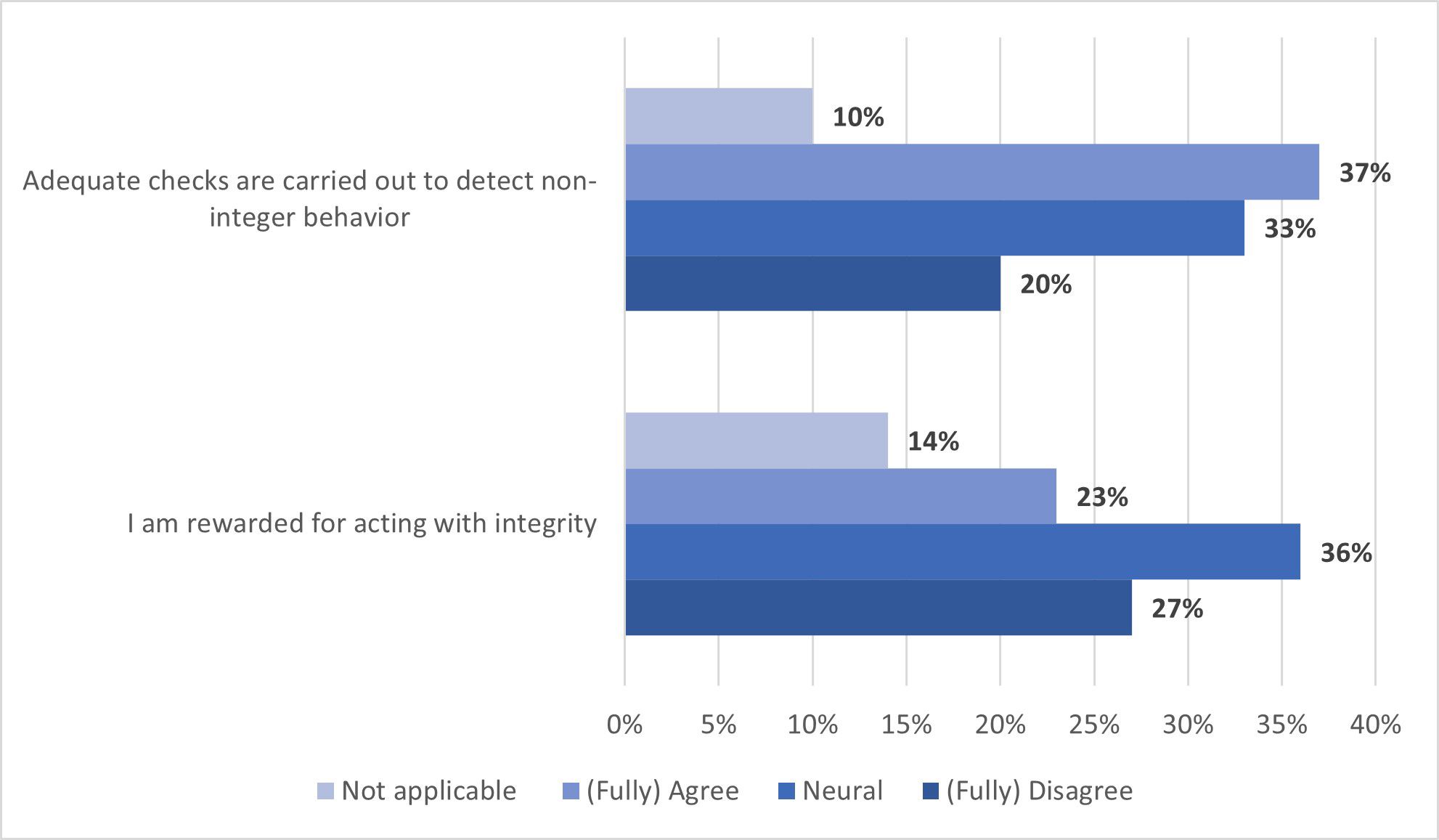
Despite heavy pressure, employees experience space to learn from mistakes
Overall, 27% of the Dutch employees feel great pressure to achieve commercial goals, which increases the likelihood of employees "cutting corners”. In contrast, Dutch employees are positive about the extent to which they can learn from their mistakes within their organization: 83% hold that view. Learning from mistakes is essential to promoting the integrity climate. By acknowledging and analyzing our mistakes, we can gain insight into where we may be deviating from prevailing norms and values. This awareness allows us to review our decision-making, adjust our actions and make better choices that are in line with the integrity climate.
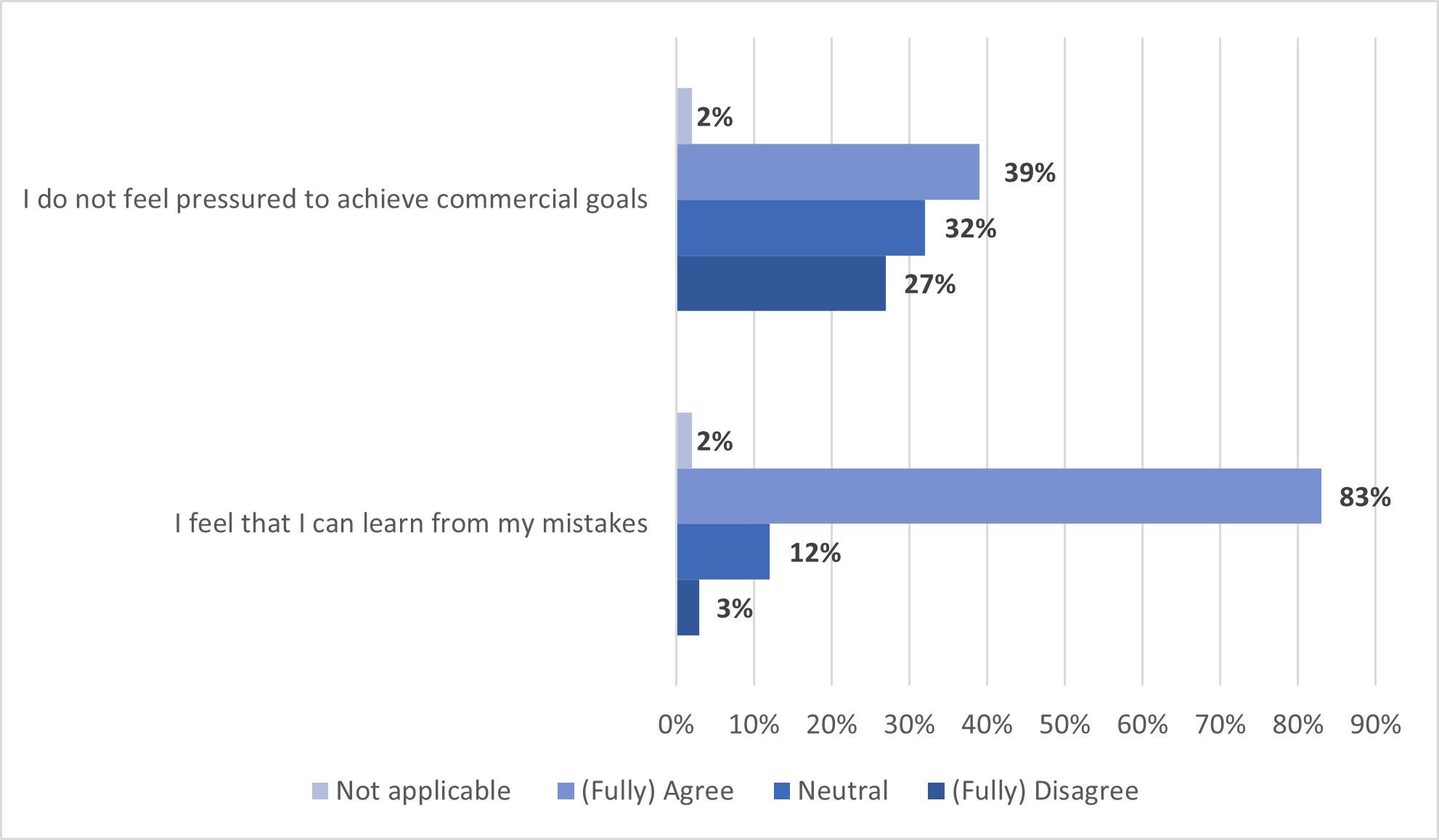
Nearly half of observed violations go unreported
Employees who observed an integrity violation do not report it in almost half of the cases (48%). Most cited reasons are that employees expect a negative reaction when they report, feel it is not up to them to make a report and do not want to be seen as troublemakers. When integrity incidents are not reported, they can continue for longer periods with all ensuing harm. Experience with our clients shows that there are many employees who do report integrity violations in their work. A prerequisite is that they can be confident that their report will be adequately addressed.
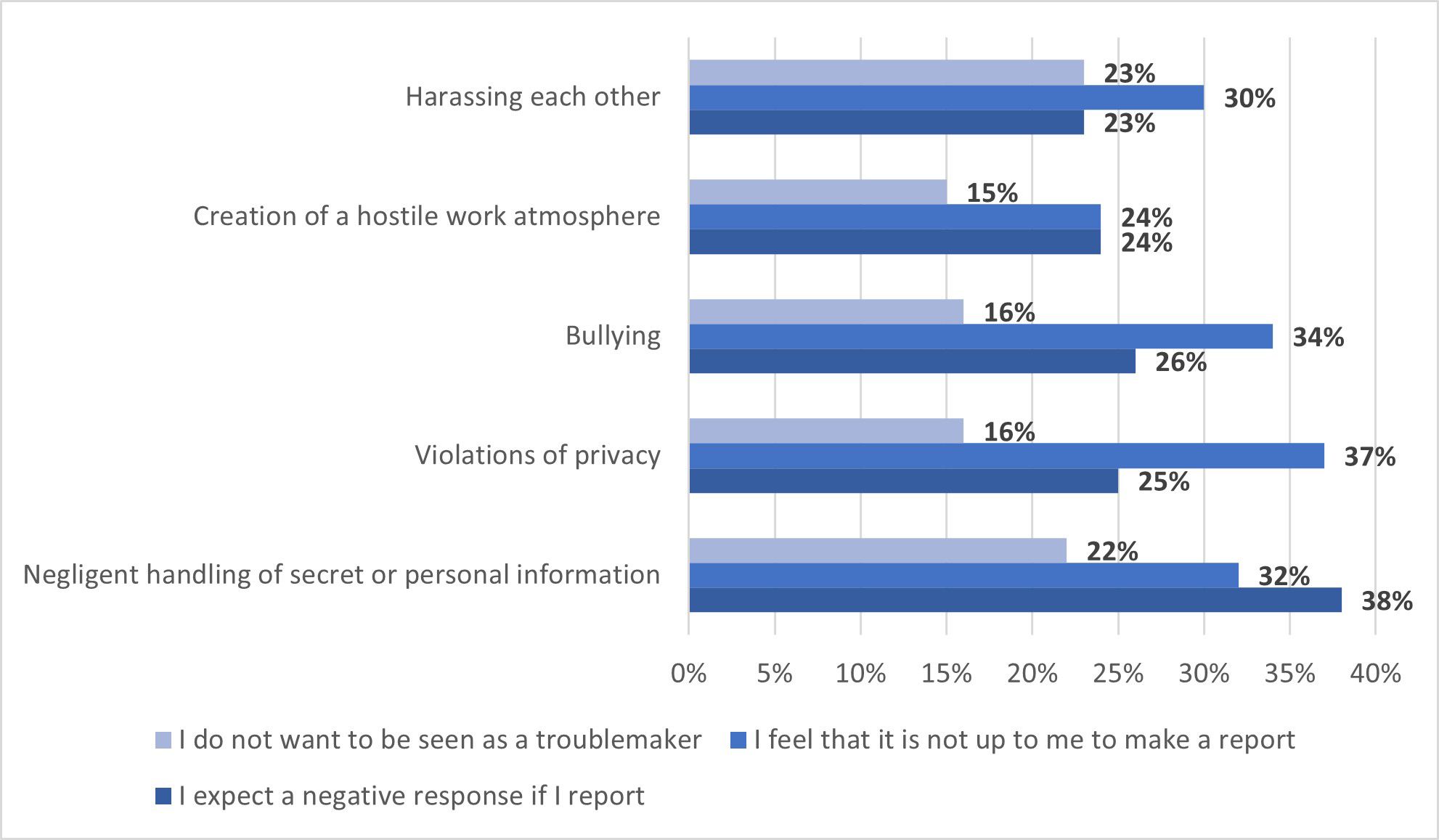
Contact our experts
More information? Feel free to contact Muel Kaptein and Paul Hulshof.

